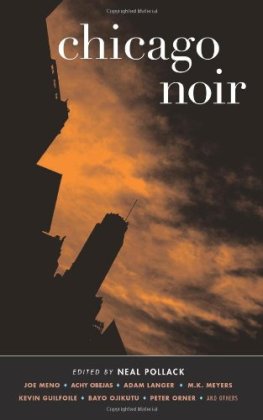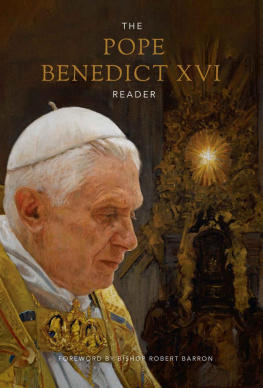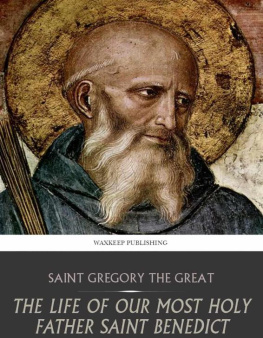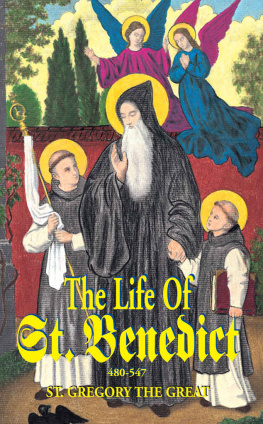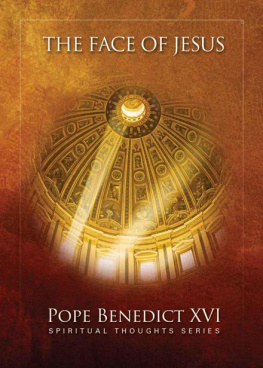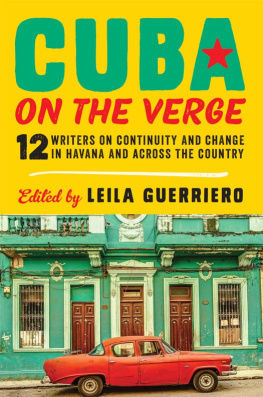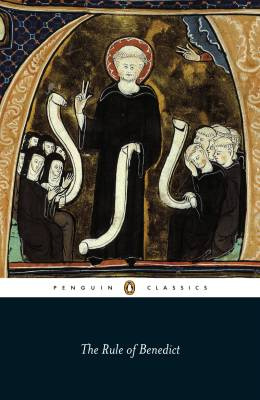Elio Guerriero - Benedict XVI : his life and thought
Here you can read online Elio Guerriero - Benedict XVI : his life and thought full text of the book (entire story) in english for free. Download pdf and epub, get meaning, cover and reviews about this ebook. year: 2018, genre: Detective and thriller. Description of the work, (preface) as well as reviews are available. Best literature library LitArk.com created for fans of good reading and offers a wide selection of genres:
Romance novel
Science fiction
Adventure
Detective
Science
History
Home and family
Prose
Art
Politics
Computer
Non-fiction
Religion
Business
Children
Humor
Choose a favorite category and find really read worthwhile books. Enjoy immersion in the world of imagination, feel the emotions of the characters or learn something new for yourself, make an fascinating discovery.

- Book:Benedict XVI : his life and thought
- Author:
- Genre:
- Year:2018
- Rating:5 / 5
- Favourites:Add to favourites
- Your mark:
- 100
- 1
- 2
- 3
- 4
- 5
Benedict XVI : his life and thought: summary, description and annotation
We offer to read an annotation, description, summary or preface (depends on what the author of the book "Benedict XVI : his life and thought" wrote himself). If you haven't found the necessary information about the book — write in the comments, we will try to find it.
Elio Guerriero: author's other books
Who wrote Benedict XVI : his life and thought? Find out the surname, the name of the author of the book and a list of all author's works by series.
Benedict XVI : his life and thought — read online for free the complete book (whole text) full work
Below is the text of the book, divided by pages. System saving the place of the last page read, allows you to conveniently read the book "Benedict XVI : his life and thought" online for free, without having to search again every time where you left off. Put a bookmark, and you can go to the page where you finished reading at any time.
Font size:
Interval:
Bookmark:
BENEDICT XVI
His Life and Thought
ELIO GUERRIERO
His Life and Thought
With a Foreword by Pope Francis
And an Interview with Pope Benedict XVI
Translated by William J. Melcher
IGNATIUS PRESS SAN FRANCISCO
Original Italian edition:
Servitore di Dio e dellumanit:
La biografia di Benedetto XVI
2016 by Mondadori Libri S.p.A., Milan, Italy
Cover photograph by Stefano Spaziani
Cover design by Roxanne Mei Lum
2018 by Ignatius Press, San Francisco
All rights reserved
ISBN 978-1-62164-183-4 (HB)
ISBN 978-1-64229-049-3 (EB)
Library of Congress Control Number 2017941963
Printed in the United States of America
To von Balthasar, de Lubac, and Ratzinger,
my teachers
by Pope Francis
This extensive biography of my predecessor Benedict XVI is welcome: it offers a comprehensive, reliable, and balanced account of his life and of the development of his thought.
All of us in the Church owe a great debt of gratitude to Joseph Ratzinger/Benedict XVI for the depth and balance of his theological thought, which he has always lived out in service to the Church up to the highest positions of responsibility, as prefect of the Congregation for the Doctrine of the Faith during the very long pontificate of John Paul II and finally as universal pastor. The contribution of his faith and learning to a Magisterium of the Church that is capable of responding to the expectations of our time, especially in the course of the last three decades, has been of fundamental importance. And the courage and determination with which he has confronted difficult situations has shown the way to respond to them with humility and truth, in a spirit of renewal and purification.
But I wish to insist on the fact that in these first years of my pontificate, my spiritual bond with him remains especially deep. His discreet presence and his prayers for the Church are a continual support and encouragement for my ministry.
I have often remembered his last audience and his farewell address to the cardinals, on February 28, 2013, before leaving the Vatican, when he spoke these moving words: Among you... there is also the future pope to whom today I promise my unconditional reverence and obedience. I could not know then that they would refer to me. But in all my meetings with him, I have been able to experience not only reverence and obedience but also cordial spiritual closeness, joy in praying together, sincere brotherhood, understanding, and friendship, and also availability to counsel. Who can understand better than he the joys but also the difficulties of service to the universal Church and to todays world and be spiritually close to the one called by the Lord to carry the weight of it? Therefore, his prayers and his welcome friendship are particularly precious to me.
For the Church, the presence of a pope emeritus besides the one in office is a novelty. And since they like each other, it is a good novelty. In a certain sense, it expresses in a particularly evident way the continuity of the Petrine ministry, without interruption, like the links of one and the same chain welded by love.
The holy pilgrim people of God have understood this very well. Every time the pope emeritus, accepting my invitation, has appeared in public and I have been able to embrace him in front of everyone, the joy and applause of those present have been sincere and intense.
I am very grateful to Benedict XVI for his willingness to participate in the opening of the Jubilee Year of Mercy by passing through the Holy Door right after me. In a recent interview of his (LOsservatore Romano, March 17, 2016), in which he points out as signs of the times the fact that the idea of Gods mercy is becoming increasingly central and dominant and that man today is awaiting mercy, demonstrates once again in the clearest way how Gods merciful love is the deepest unifying theme of recent pontificates, the most urgent message that the outgoing Church brings to the peripheries of a world marked by conflicts, injustices, and contempt for human persons.
Although situations and persons naturally vary, the mission of the Church and the ministry of Peter are always a proclamation of Gods merciful love for the world. Joseph Ratzingers whole life, his thought and his works, have been aimed at this goal, and with Gods help I am striving to continue in the same direction.
A biography of Joseph RatzingerBenedict XVImust necessarily start off with historical-geographical background information. He was born in Germany in 1927 at the time of the inauspicious rise of Nazism, which was to leave so much horror behind. Like many German Catholics, he grew to reject every sort of violence, while also seeking to survive the tidal wave of barbarity that was extending dangerously from Germany to all of Europe.
The upheavals of war led him, during his years of formation, to approach two thinkers, Augustine and Bonaventure, who had put time at the center of their reflections. The African Father placed Gods love at the origin of history and regarded his grace, proclaimed by Jesus, as a gift conceded to mans weakness. The ancient Parisian magister (schoolmaster), once he had become Minister General of the Franciscans and together with the historic change brought about by the poverello of Assisi, stressed the continuity in Gods revelation that culminated in Jesus Christ and remains alive and at work in time despite institutional weakness and corruption. However, notwithstanding the millenarian illusions of Joachim of Fiore and his imitators in every era, one cannot entirely dispense with institutions. The reign of God proclaimed by Jesus is certainly near, through the presence of grace and the sacraments, but, once again, it is not within mans capabilities to achieve it or even merely to hasten its coming.
Supported by the thought of these two Doctors of the Church, but also of contemporary theologians such as Henri de Lubac and Hans Urs von Balthasar, at Vatican II Ratzinger was a staunch adversary of the naturalistic vision of Scholasticism that was still dominant in the congregations and in the pontifical universities of Rome. Some years later, however, with equal determination, he distanced himself from Rahner, Kng, the liberation theologians, and others who, in his opinion, by insisting excessively on novelty, ran the risk of breaking the flow of tradition. For Ratzinger, the latter is an uninterrupted course that, when traced back, leads to the apostolic origins and to Jesus himself.
In Munich, the cardinal was acquainted with the Integrierte Gemeinde, a small movement of Christians who had been persuaded by the Nazi horror to think again about the eternal Israel and about Christians debt of gratitude to the people of the promise. This prompted him to develop the idea of the many religions and the one covenant established by God with mankind through the sons of Abraham. This perspective shaped his thought about the revelation that started in the covenant at Sinai and was brought to fulfillment by Jesus with the new law proclaimed on the Mount of the Beatitudes.
As prefect of the former Holy Office, Ratzinger sought to support the work of John Paul II, finally putting an end to the ill-fated consequences of Nazism and the war and calling Europe not only back to its Christian origins but also to the love and the beauty that are able to design and provide more welcoming structures for countries and cities, environments and landscapes.
As pope, just as he had already done in Munich, Benedict considered that his job did not consist solely in reforming old institutions; rather, looking farther, he invited the Church to faith and to metanoia, the change of heart required by the sexual and financial scandals.
Next pageFont size:
Interval:
Bookmark:
Similar books «Benedict XVI : his life and thought»
Look at similar books to Benedict XVI : his life and thought. We have selected literature similar in name and meaning in the hope of providing readers with more options to find new, interesting, not yet read works.
Discussion, reviews of the book Benedict XVI : his life and thought and just readers' own opinions. Leave your comments, write what you think about the work, its meaning or the main characters. Specify what exactly you liked and what you didn't like, and why you think so.


